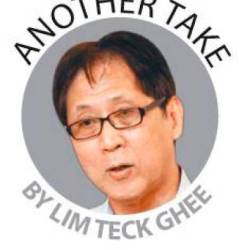But Africa remains the “forgotten continent”, according to Rabia Balewa of the development group Abantu. “Africa disappears from the agenda unless there is a disaster. There is a tendency to always view the continent in negative terms, even when there is something positive happening there,” she said.
EU officials working in the field echo this concern.
“Africa gets less and less attention,” said one.
“There is a widespread view that it is nothing more than a bunch of countries fighting each other.”
In the global political and economic order dominated by the West, the continent continually overlooked as a stake player has been Africa.
Often described as the “forgotten continent,“ leaders of 53 African countries recently gathered at the China-Africa summit in Beijing.
They met to work with the continent’s biggest investor and supporter, China, to help build a new Africa. With its 1.4 billion people – about the same as China – Africa aims to overcome the underdevelopment and poverty that has blighted the potential of 18% of the world’s population.
Described by China’s Ministry of Foreign Affairs as the “largest diplomatic event” the country has hosted in recent years, with the highest attendance of foreign leaders, the summit focused on industrialisation, agriculture, infrastructure, education, health and a host of other sectors important to the region’s development.
Besides the individual country and project agreements, the most important outcomes for the “forgotten continent” include:
China’s duty-free tariff treatment to 100% of the tariff lines of products from 33 African countries;
China’s 360 billion yuan (RM180 billion) in financial support to Africa over the next three years; and
Joint initiatives covering learning, trade, industrial chain cooperation, connectivity, development cooperation, healthcare, rural revitalisation and people’s well-being, people-to-people exchanges, green development and common security.
Western media have been quiet or dismissive of the summit, with many consigning the news to an inconspicuous section of the paper or stressing how China has engineered the event to further enhance its access to Africa’s raw materials, and extend its “baleful” influence over Africa.
West: Primary factor in Africa’s underdevelopment
This reticence is to be expected. The historical record is that Africa was never a “forgotten” continent though labelled as such.
In the last two centuries, multiple European nations, including the most powerful at their time - Belgium, France, Britain, Germany, Italy, Spain and Portugal - scrambled, conquered and divided up Africa in their “new” imperialism aimed at the exploitation of African labour and natural resources.
They left behind traumatised communities, plundered economies, artificial states and recurring cycles of violence, poverty and authoritarianism whose effects are still to be found today.
Africa was never “dark”, “mysterious” or “forgotten” to Europe and Europeans.
On the contrary, it was an open, much sought-after, and enduring source of loot and countless wealth.
Estimated by some economic historians to run into the hundreds of trillions of dollars simply in monetary value, this colonial extraction which wrecked the societies of pre-colonial Africa has played a key part in laying the foundation for affluent modern Europe as we know it today but which many Europeans and other people in the West appear oblivious of.
This history has been glossed over or omitted by Europe, the US and other allies in their efforts at neo-colonial exploitation of Africa.
What we see is continuing pressure to ensure that Africa remains tied to the West in whatever changes take place, especially in the mining, energy, transport and industrial sectors, where Western corporate interests have long been entrenched and where the colonial legacy with its poverty trap continues.
The concern that Africa does not decouple from Europe - that it is firmly tied to economic, ideological and cultural dependence on the West - arises not only from considerations of monetary and economic gain.
It has been made more urgent by the rise and success of China in providing a different political and socio-economic model of development to other regions of the world.
A new Africa freed from colonial and neo-colonial bondage, and with its own model of development borrowing the best from China and other countries of the world will not only no longer be a subject of pity, remorse, charity and negative sentiment, especially as seen by the West.
It also has the opportunity to remake the world order.
In the words of the final communique released by the Forum on China-Africa Cooperation Summit:
“The two sides advocate an equal and orderly multipolar world and maintain that all countries, regardless of differences in terms of geographical size, population density and socioeconomic development, should have equal rights, equal opportunities and follow the same rules, uphold the international system with the UN at its core, the international order underpinned by international law and the basic norms governing international relations based on the purposes and principles of the UN Charter.”
Lim Teck Ghee’s Another Take is aimed at demystifying social orthodoxy. Comments: letters@thesundaily.com










